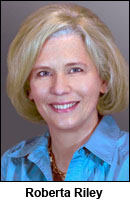OPINION
ACA helping, but more can be done for those who need care
By ROBERTA RILEY
(Nov. 11, 2014) — I was slogging around the east side of Seattle’s Key Arena in my rain boots, brandishing my umbrella against the storm, when I nearly stumbled into a guy padlocking his bike to a rack.
Soaking wet, he looked up and asked, “Do you know how to get inside to the free clinic?”
That is how I met Robert, a middle-aged father of three who rode his bicycle from West Seattle to the Seattle Center, in a wicked downpour, hoping to receive care. Because he’s in good shape, he was able to make this harrowing ride; but he hasn’t seen a dentist in years, and is suffering tooth pain. He’s also had eye problems ever since his eye was injured in an accident when he was 14 years old. So far, his vision is good enough to keep working. He puts in 50 to 60 hours a week as a driver. But he needs medical care to keep his vision.
Robert desperately wants health insurance. He understands all too well that medical bills could bankrupt his family. Fortunately, his wife is covered through her employer, and their children, ages 6, 9 and 11, are covered through Apple Health for Kids (also known as CHIP).
During last year’s open enrollment, he and his wife went online in the hopes of signing him up for coverage on Washington Healthplanfinder. But when they plugged in their income figures, the exchange determined that, even with the subsidy, he was going to have to pay a monthly premium of about $300.
“I just can’t afford it,” he said repeatedly, shaking his head. The fine print also scared him off. “I was pretty sure words like ‘deductible’ and ‘copayment’ meant I would get screwed with a lot of medical bills,” he told me.
 So I walked with Robert around the perimeter of the arena. Every door was locked and guarded. On the north side, we joined a gathering of people trying to get in. After a few minutes, the uniformed lady defending the door slipped it open a crack, just enough to project her voice: “Nobody else will be getting in today. We are full to capacity. If you want into the clinic tomorrow, you must come back at midnight and stand over there in line,” she said, pointing to an outdoor ticket window.
So I walked with Robert around the perimeter of the arena. Every door was locked and guarded. On the north side, we joined a gathering of people trying to get in. After a few minutes, the uniformed lady defending the door slipped it open a crack, just enough to project her voice: “Nobody else will be getting in today. We are full to capacity. If you want into the clinic tomorrow, you must come back at midnight and stand over there in line,” she said, pointing to an outdoor ticket window.
I spoke up.
“Ma’am, the weather forecast is predicting a terrible storm tonight with winds up to 65 mph.”
Bring a blanket, she advised.
In other words, all of the 4000-plus people who actually got into the arena to see a doctor or dentist or optometrist, had to sacrifice a night’s sleep, and their very health, to do so. Countless more were turned away. As Robert pedaled off, I urged him to try for health coverage again, when open enrollment starts November 15.
If only a few elected officials had witnessed this heartbreaking scene as families from places like Federal Way, Lakewood, Marysville, Puyallup and Shelton arrived seeking care. They put a human face on the recent words of Molly Firth, of the Community Health Network of Washington, “we’ve made great progress, but we have a long way to go.” (Firth’s interview starts at 22.33)
Indeed, in 2014, well over half a million Washington residents gained access to health coverage and care, many for the first time. This is a giant step forward. Our state is one of the most successful in the nation in rolling out the sweeping, new coverage expansions of the Affordable Care Act.
 But many, like Robert, are still falling through the cracks. Affordability remains an obstacle for many lower income families, according to a new survey by Northwest Health Law Advocates. Robert exemplifies why state lawmakers need to identify solutions. The Affordable Care Act encourages states to innovate by bundling federal subsidies and leveraging state purchasing power to cover thousands more of our hard-working friends and neighbors, at lower, more affordable premiums. That would be a lot smarter than leaving families who need care out in the storm.
But many, like Robert, are still falling through the cracks. Affordability remains an obstacle for many lower income families, according to a new survey by Northwest Health Law Advocates. Robert exemplifies why state lawmakers need to identify solutions. The Affordable Care Act encourages states to innovate by bundling federal subsidies and leveraging state purchasing power to cover thousands more of our hard-working friends and neighbors, at lower, more affordable premiums. That would be a lot smarter than leaving families who need care out in the storm.
Roberta Riley is the Communications Director for Northwest Health Law Advocates, a non-profit dedicated to health care for all.





